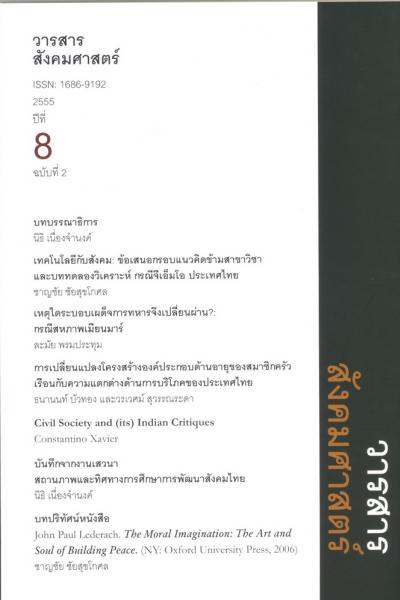Why do Military Regimes Transform?:A case of Myanmar
Main Article Content
Abstract
The reforms the so-called "'civilian government" of Myanmar
after 30 March 2011 took many of the even most experienced politicians,
diplomats and scientifc observers by suprise. The "years of darkiness"
(in Obama's speech) seem to be over. The transformation process to-
wards cemocracy and market economy is genuine. But the reasons for the
regime opening up are still not clear. The goal is to find out more about
the conditions for military withdrawal and transformation of author-
tarian rule in Myanmar. The results show that there is no monocausal
explanation. Many of the domestic reasons for the transformation of
authoritarian regimes can be applied to the case of Myanmar. However,
they orly apply partially likse split within the military or econonic crsis.
On the international conditions, neither the sanction-dominated policy
of the West nor the constructive engagement-approach of Asian coun-
tries was the main factors for transformation. But one condition proved
important: The close relationship to China led to fear in the Myanmar
military of being dominated by an external power. In this sense, too
much backing by an external power has contributed to transformation.


